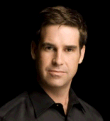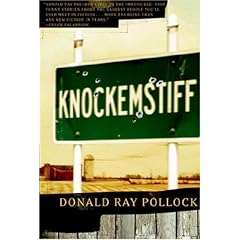new posts in all blogs
Viewing: Blog Posts Tagged with: day jobs, Most Recent at Top [Help]
Results 1 - 14 of 14
How to use this Page
You are viewing the most recent posts tagged with the words: day jobs in the JacketFlap blog reader. What is a tag? Think of a tag as a keyword or category label. Tags can both help you find posts on JacketFlap.com as well as provide an easy way for you to "remember" and classify posts for later recall. Try adding a tag yourself by clicking "Add a tag" below a post's header. Scroll down through the list of Recent Posts in the left column and click on a post title that sounds interesting. You can view all posts from a specific blog by clicking the Blog name in the right column, or you can click a 'More Posts from this Blog' link in any individual post.
If you're reading this post in the morning of the day it's come out, send me a positive brain wave and cross your fingers for me: I'm currently shaking fretting panicking calmly getting ready for a job interview in a university somewhere in the UK...
So I'm taking this blog post as an opportunity to reflect on the difficulties and joys of having another job in addition to writing, one that you really don't want to give up on. Most people tend to assume that I'm secretly dreaming of being a full-time writer. I often hear, 'Are you keeping up the academic side just for the money?'
That's easily answered in MS Paint:
To most people, if you have an 'artistic' side, anything else you do must surely be 'paying' for your artistic activity. If you're not giving up the 'day job', it probably means the artistic one doesn't earn you anything, or not enough.
Even my academic colleagues have somehow internalised the notion that I would 'prefer' to write children's books as a full-time job; that it's what I
really want to do. We were talking at lunch about what we'd do if we won the lottery (
yes, students: that's the kind of thing your lecturers and tutors talk about at lunch), and several colleagues said that they'd quit their job immediately. I said I certainly wouldn't stop working - I like my research and teaching, and I'd get bored. The immediate response was, 'But you could spend all the time you want on writing your children's books!'
Frankly, if I really wanted to spend all my time writing children's books... well, I would take the jump and do it.
And if I needed a job to subsidise this activity, I probably wouldn't opt for one that requires hours of teaching, reading, essay-marking, meeting-going, networking, jargon-deciphering, revise-and-resubmitting, email-sending at two in the morning, in a crazy incertain job market, with no weekends to speak of, holidays that are in fact conferences, and the absolute impossibility to stick to regular hours.
Well then, are you keeping up the academic job as a safety net, 'just in case the writing doesn't work out?'(The notion of academia as a 'safety net' is just... I mean, I wish, but...)
If the writing didn't 'work out',
it would probably be in part because of the other job. Writing success isn't some esoteric thing that does or doesn't work out according to the unpredictable movements of the stars - the more you work on it, the more likely it is to 'work out'. You might never be J.K. Rowling,
but you can get very respectable sales by being strategic, working hard, meeting children and promoting your books. This is more difficult when you've got another job.
So of course,
having another job isn't ideal for your publishers, agents and publicists. There is definitely faint pressure to 'quit the day job' and be a full-time author. School visits and festivals often happen during the week. Even if you can make some of it, you can't be one of these writers who do school visits all the time. Therefore your books might not sell as well, and you might not get as high an advance next time, or even asked for another book.
Gone are the days when it was acceptable to write your books in your 'free time', and to decide that this year, you'll only publish one, or none. It doesn't work like that in the UK (to a degree, it still does in France). The publish or perish rule applies here like it does in academia; being a part-time writer will always put you at a disadvantage.
Implicitly, there is pressure also from other authors and illustrators who are full time.
There's a very legitimate worry that writers like me contribute to making our activity appear unprofessional, amateurish, dilettantish, something you do 'when you've got the time', or if a partner is subsidising your indulgent bohemian bourgeois lifestyle. I entirely understand this concern, and it does bother me that I contribute to this vision. Authors and illustrators should absolutely be in a position to live - and to live well - thanks to their work.
Saying that your writing brings you 'pocket money' or is 'a fun thing on the side' is quite insulting to the rest of the community.But choosing not to choose is perhaps the only authentic option when you have the luxury of having two activities that bring you different rewards, different challenges and different joys. And many people, I'm sure, secretly want to do
not just one thing, but
several. Recently a student asked me for career advice (I know, terrifying). She said she was split, because she wanted to be a film maker, but 'not just': she was also considering being a researcher in psychology, or perhaps a teacher, or even a consultant. Why can't we do several things at the same time, when we have so many interests?
I agreed of course, but said the reasonable thing: doing several jobs, especially an artistic one and another 'official' one, is difficult. She said 'Well, you manage it!' I told her 'managing' was a strong word - she doesn't see the moments when I'm marking essays all evening before updating my PowerPoint for a school visit the next day, or playing Google-Calendar-Tetris with deadlines on fiction-writing and article submissions and conference abstracts and book edits.
Since I was making it sound like my life was only slightly less sinister than that of the Baudelaire orphans, she blurted out:
'But you're happy, aren't you?'. I had to admit that I am...
_____________________________________
Clementine Beauvais writes children's books in French and English. She blogs
here about children's literature and academia and is on Twitter @
blueclementine.

I'm BAAAAAAACK! Didja miss me?
Greetings and salutations once again, mortals of planet earth. It is I your beneficent malevolent future world dictator (doesn’t dictator sound like the reproductive organ of a potato? Always makes me giggle) here once again to commandeer the blog of the glorious earth woman Jennifer Wylie.
What’s the topic of conversation today, Lord Master?
I knew you were going to ask me that. Today boys and girls we shall be discussing the bane of writers and authors everywhere. DAY JOBS.
Unless you were born in Beverly Hills and have a last name like Hilton or Kardashian (but then again if you do have that last name you’re probably too stupid to write, yeah I said it) you started out with humble origins and need a day job to support your family while you pen your novels.
Even I have a day job. (GASP)
I’ve had a LOT of minions ask me what my day job is. I tell them I’m a fiber optic engineer. This statement is usually followed by me smiling down at their look of incomprehension and wiping the small trail of drool sliding ungracefully down their chins. I thought I would use this hijacking to explain it in detail. It is kinda cool.
You see, I work for a small telecommunications company in Southern Florida while I write and plot my subjugation of the planetoid known as earth. Basically they supply telephone, cable, internet, and alarm services to posh gated communities in our area. What is different about the company I work for is their method of delivery. Most companies run fiber optics from their HEAD ENDS to what is called a NODE and then run copper wires in different forms to the houses of their subscribers. My company runs the fiber straight up into the house. Talk about FAST internet.
This is where I enter the picture. My responsibilities are designing how to get the fiber from our HEAD END to each house. I get to play with CAD software most of the time and make pretty maps of neighborhoods in glowing neon colors and then record what color fiber goes to what house. What can I say…It’s a living.

 So now you’re thinking…What a joke. He plays on the computer all day? HA! I frigging wish. Just because I design the networks doesn’t mean my job is done. All of our fiber optics are run underground. They don’t want telephone poles and hanging wires in posh gated communities. NO. They want invisibility. So, we have pipes running all through these neighborhoods and pull large fibers to vaults called nodes and then smaller fibers called drops straight into the house. What’s really cool is that inside these large pipes are a whole bunch of little tubes that the fiber gets blown through with compressed air.
So now you’re thinking…What a joke. He plays on the computer all day? HA! I frigging wish. Just because I design the networks doesn’t mean my job is done. All of our fiber optics are run underground. They don’t want telephone poles and hanging wires in posh gated communities. NO. They want invisibility. So, we have pipes running all through these neighborhoods and pull large fibers to vaults called nodes and then smaller fibers called drops straight into the house. What’s really cool is that inside these large pipes are a whole bunch of little tubes that the fiber gets blown through with compressed air.
 Alexis Grant has a day job as a journalist and devotes her evenings and weekends to writing her book. In a guest blog post on Guide to Literary Agents, she listed five reasons why writers should keep their day jobs.
Alexis Grant has a day job as a journalist and devotes her evenings and weekends to writing her book. In a guest blog post on Guide to Literary Agents, she listed five reasons why writers should keep their day jobs.
Grant (pictured, via) explained that having “a job helps you generate ideas.” Other benefits of a day job included: forced productivity, a steady paycheck and health insurance.
Here’s more from her blog post: “Having a day job gives you the opportunity to get out and about, talk with smart people and learn new things. You can do all of that without a day job, of course – but we often don’t make it a priority. The daily interactions I have through my job often lead to ideas for ebooks and blog posts and freelance pieces. Without that stimulation, I wouldn’t be the same writer.”
continued…
New Career Opportunities Daily: The best jobs in media.
From now on, when people inquire how I feel about working a day job, I think I’ll defer to Philip Larkin. Asked about his life as a University of Hull librarian, the poet replied:
Taking it all in all, work and I get on fairly well, I think. There are just these occasions when one would like to prove it by not working for a bit.
And to feel that you’re spending your life on the one rather than the other I think is perhaps the most depressing thought that work can bring you — that when I bind up library committee minutes at the end of five years it makes a big fat volume, but it’s not the same as a volume of poetry. They are very good minutes — but the minute as an art form has its limitations.
You can also hear Larkin read “Aubade,” which rightly tops Alex Balk’s Listicle without Commentary: The 94 Best Philip Larkin Poems, In Order. “This is a special way of being afraid/ No trick dispels. Religion used to try, / That vast, moth-eaten musical brocade/ Created to pretend we never die.”
(I know. I always get so dramatic when my birthday is approaching.)
In my discussion of last week's Writing Quote of the Week I touched on the fact that writing is not often a lucrative career, financially. So, when searching for a quote for this week, this one spoke to me as following on well:
If you have other things in your life - family, friends, good productive day work - these can interact with your writing and the sum will be all the richer.
(David Brin)
That’s a video of crime novelist Jason Pinter describing how he built his third novel, The Stolen, from the ground up. It’s so important for aspiring writers to hear these stories, to remember that novels don’t magically appear out of thin air.
Today, Pinter is our special guest, explaining how he found time to balance his work-life and writing-life—a tough balance for any writer.
Welcome to my deceptively simple feature, Five Easy Questions. In the spirit of Jack Nicholson’s mad piano player, I run a weekly set of quality conversations with writing pioneers—delivering some practical, unexpected advice about web writing.
Jason Boog:
While writing your series, you worked as a busy book editor. How do you balance your work-life and writing life? Any advice for harried writers struggling to find time to write with a day-job?
Jason Pinter:
I started to write my first novel--one that didn't sell--in college, before I worked full time (you can guess if I was a good student based on that). Continue reading...

 “When I was gripped by fits of cocaine paranoia, I would burn my poetry journals and watch the burning pages peel off one another in layers, the flames spitting little gray flakes into the air. As my ashen words swirled into the heavens, it pleased me to know that my inner self was once again safe”
“When I was gripped by fits of cocaine paranoia, I would burn my poetry journals and watch the burning pages peel off one another in layers, the flames spitting little gray flakes into the air. As my ashen words swirled into the heavens, it pleased me to know that my inner self was once again safe”
That’s a scene from Andrew Davidson's first novel, The Gargoyle--a an obsessive love story about a badly-burned man and his soulmate. Davidson’s main character is haunted by writing throughout the book, and he ultimately takes up the enormous task of writing his own life story.
In real life, Davidson has a more pragmatic view towards writing. He put together his massive novel while working as an English teacher and web designer. Today, he tells us how he did it in my deceptively simple feature, Five Easy Questions.
In the spirit of Jack Nicholson’s mad piano player, I run a weekly set of quality conversations with writing pioneers—delivering some practical, unexpected advice about web writing.
Jason Boog:
While writing this novel, you also worked a number of freelance projects and day-jobs. How did you balance your work-life and your writing life? Any advice for fledgling writers who feel swamped by their work-lives?
Andrew Davidson:
There’s a famous quote by Peter De Vries—which I can’t bring myself to verify, for fear that I’ll discover he never actually said it. Continue reading...

 "[I was] thinking about that E.B. White passage you once showed me ... the swooning bit where he says that it's the native New Yorkers who give the city its stability, and the commuters who give it a daily tidal rhythm or something, but it's those dreamers from elsewhere, the striving poets and wannabe circus performers and so forth, who power it with enough heat and light to dwarf the consolidated Edison company..."
"[I was] thinking about that E.B. White passage you once showed me ... the swooning bit where he says that it's the native New Yorkers who give the city its stability, and the commuters who give it a daily tidal rhythm or something, but it's those dreamers from elsewhere, the striving poets and wannabe circus performers and so forth, who power it with enough heat and light to dwarf the consolidated Edison company..."
That’s one of Ed Park's characters paraphrasing a famous line from E.B. White.
Park's new book, Personal Days, explores how that idealism gets wrecked on the shoals of Manhattan office culture. In addition to his fictional work, Ed Park is a founding editor at The Believer and literary blogger over at The Dizzies.
Welcome to my deceptively simple feature, Five Easy Questions. In the spirit of Jack Nicholson’s mad piano player, I run a weekly set of quality conversations with writing pioneers—delivering some practical, unexpected advice about web writing.
Jason Boog:
At the end of your book, you meditate on all the millions of pages of lost, dull prose produced by people in offices every year. When you worked in an office environment, how did you manage to stay creative and productive in your writing? Any advice for writers who feel dulled by their day-jobs?
Ed Park:
Discipline will take you a long way—if you set aside time every day to write, you will find something to write, even if you don’t know what you’re doing as you approach the desk. Continue reading...

 Writing is a scary field--it requires lots of work with little rewards, it's tough to break in, and worst of all, there isn't an ounce of job security.
Writing is a scary field--it requires lots of work with little rewards, it's tough to break in, and worst of all, there isn't an ounce of job security.
Despite all these risks, author Donald Ray Pollock left his solid job at a paper mill and followed his dream to become a writer. Today he tells us how he left his day-job and emerged with a book of rough-and-tumble short-stories about his Ohio hometown called Knockemstiff.
Welcome to my deceptively simple feature, Five Easy Questions. In the spirit of Jack Nicholson’s mad piano player, I run a weekly set of quality conversations with writing pioneers—delivering some practical, unexpected advice about web writing.
Jason Boog:
You took a big risk and left your job to become a writer. You said in one interview, "I was really not satisfied. I wanted to do something else before I kicked the bucket. I told my wife I was going to try to write and I would give it five years." How did you cope with the frustrations and insecurities you faced along that journey?
Donald Ray Pollock:
Okay, at the age of forty-five, I’d been at the paper mill for twenty-seven years. I became depressed that year, began to feel like I’d wasted my life. Continue reading...

Find a day-job you love, and stick with it.
As we near the end of Writing With A Day-Job Week, that's some of the simplest, best advice anybody can give you. But don't take my word for it.
Earlier this year we spoke with Rachel Fershleiser who works at Housing Works Bookstore Café. You can see her day-job workplace in the background of my video feature that I embedded in this post.
While working there, she helped co-edit the new six-word memoir collection, Not Quite What I Was Planning--having a day-job she loved gave her the free headspace to edit for Smith Magazine and work on her projects. Check it out:
"Some days I catch up on e-mails straight through my day-job lunch break and realize several hours later I’ve forgotten to eat. One thing that does work out for me is that I absolutely love my day job, at the amazing non-profit Housing Works Bookstore Café. A lot of my coworkers are writers and very supportive."

 Need a break? My impending vacation next week coincidentally coincided with a New York Times article about overworked writers and the health problems they face.
Need a break? My impending vacation next week coincidentally coincided with a New York Times article about overworked writers and the health problems they face.
Personally, my day has been stretched thinner and thinner by blogging--but it gives me the chance to do fun, new stuff like this web video. As I stumbled towards the vacation finish line this weekend, I have to confess I sympathized with the suffering writers and obsessed over this slashdot thread where various professionals debated the economics of freelance blogging.
The blog-baiting story has already been commented on by nearly every single journalism blog on the Internets, but it has spawned some great quotes. Case in point, novelist John Scalzi on the life of an unprofitable blogger: "I like not having to intellectually humiliate myself online for page views. When I intellectually humiliate myself online, it’s for the pure pleasure of it."
Then, this morning, Portfolio's Jeff Bercovici woke me up with this quote. What do you think? Are web-based writers whiners or victims? I am about to go on vacation, so I disqualify myself from having any fair opinion. Dig it:
"It's that type of insularity that might lead a newspaper reporter, say, to accept at face value claims by a few fellow writers that their occupation is a singularly demanding one in a world of doctors, soldiers, air-traffic controllers, special-ed teachers and millions upon millions of sleep-deprived, time-stressed desk jockeys whose plight, alas, goes unlamented on the front page of the most widely-circulated edition of the world's most important newspaper."

I know, I know. The posting has been pretty light around here lately. Lots and lots of juggling between projects. But I'm lucky enough to have a job where I can work on freelance projects as well.
To that end, I have a super-cool video feature that I've wanted to show you for months. At the National Book Awards last year, I interviewed journalist Christopher Hitchens about the worst job he ever had.
His advice was a little bit unexpected, but an important reminder for all writers--we need to keep our focus on the writing that matters to us the most.
This might be terrible advice on the eve of a recession, but it's worth thinking about: if your dayjob is wrecking your writing, maybe it's time to look for something new.
If you want more, here's the rest of my National Book Awards coverage: Bloggers on the Balcony, a video I made about the motley crew of web writers running around the National Book Awards ceremony. Also, check out this video interview with NBA winner Sherman Alexie and NBA finalist Joshua Ferris. I also have this video interview with NBA finalists Kathleen Duey and Sara Zarr.

 “I'm in Washington Square Park wishing I could write a poem, the poem that would help. Poetry doesn't help, money helps. I know I don't believe that. What to do. Observe, observe, observe. It is my new mission to lay back and observe. Put less of myself out there and listen more.”
“I'm in Washington Square Park wishing I could write a poem, the poem that would help. Poetry doesn't help, money helps. I know I don't believe that. What to do. Observe, observe, observe. It is my new mission to lay back and observe. Put less of myself out there and listen more.”
That's memoirist Janice Erlbaum writing a blog entry in 2005, reflecting on life changes that would ultimately bring her in contact with a teenaged runaway named Sam. (She had just finished her first book, Girlbomb.
Erlbaum would keep writing as she came closer and closer to this troubled girl, and that journey is recorded in her new memoir, Have You Found Her.
Today, Erlbaum explains how she ended up becoming a writer and how she supported herself over the course of her career--all the nitty-gritty detail that can help a fledgling writers think about their own lives.
Welcome to my deceptively simple feature, Five Easy Questions. In the spirit of Jack Nicholson’s mad piano player, I run a weekly set of quality conversations with writing pioneers—delivering some practical, unexpected advice about web writing.
Jason Boog:
While writing and living this book, you also maintained a freelance career. This can be a very difficult lifestyle for a writer. How did you hold your life together, both financially and emotionally, during those early years before your first book was published?
Janice Erlbaum:
Most of my freelancing involved my books, and my steady gig as a columnist for BUST magazine, and thank god for that – I’m terrible at pitching articles and drumming up piecework. Continue reading...

An interesting idea.
For an authorial blog that takes a definite deviation from the norm, I direct your attention today to Brenda Ferber's site. Or rather, the site her children have made for her. Called Blogging for Mom, Brenda's three kids write about their mom and her books. That's filial love of an almost extreme nature. I mean, I love my husband, my parents, and my siblings, but I don't think I'd ever go out of my way to blog for them. Wow. The dedication hits home.
Ms. Ferber is best-known for her 2006 children's novel Julia's Kitchen which won the Sydney Taylor Book Award for Older Readers. The book is well worth noting, if only because it features a contemporary Jewish kid. And as one of my co-workers pointed out to me recently, if you were to look at children's novels for your understanding of the state of the world today, you'd think the Jews were a dying race that ended somewhere around 1945. Modern novels with practicing Jewish characters that are kids? Not exactly common, m'dears.







 Alexis Grant has a day job as a journalist and devotes her evenings and weekends to writing her book. In a
Alexis Grant has a day job as a journalist and devotes her evenings and weekends to writing her book. In a  “When I was gripped by fits of cocaine paranoia, I would burn my poetry journals and watch the burning pages peel off one another in layers, the flames spitting little gray flakes into the air. As my ashen words swirled into the heavens, it pleased me to know that my inner self was once again safe”
“When I was gripped by fits of cocaine paranoia, I would burn my poetry journals and watch the burning pages peel off one another in layers, the flames spitting little gray flakes into the air. As my ashen words swirled into the heavens, it pleased me to know that my inner self was once again safe”



So true, Sally. Sometimes the busiest people do get more done. Which reminds me... I'm busy I'm busy I'm busy! :)